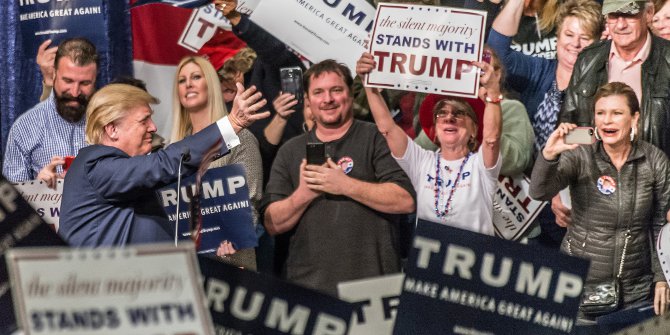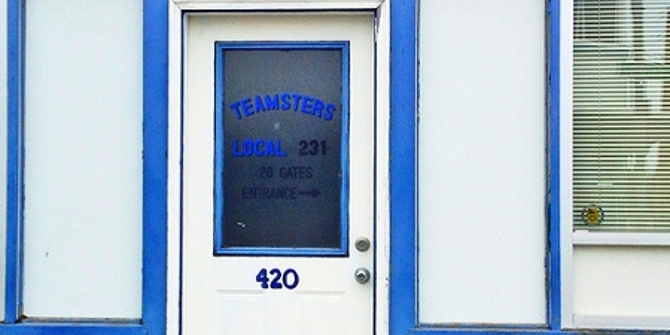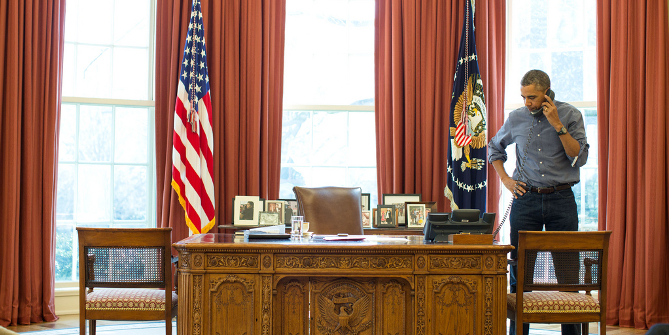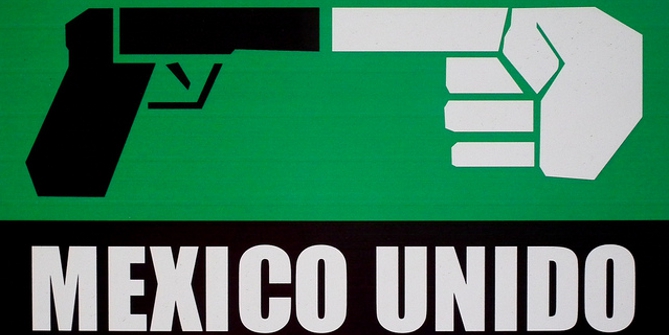 American politics is the gift that never seems to stop giving, especially in this election season. Indeed, Donald Trump alone has managed to keep the entire American punditocracy busy all by himself. US Centre Director, Peter Trubowitz takes a close look at Trumpism and its appeal – what it is, and why it has defied the political odds makers in Washington.
American politics is the gift that never seems to stop giving, especially in this election season. Indeed, Donald Trump alone has managed to keep the entire American punditocracy busy all by himself. US Centre Director, Peter Trubowitz takes a close look at Trumpism and its appeal – what it is, and why it has defied the political odds makers in Washington.
It’s easy to dismiss Donald Trump’s campaign as pure theatre – many have; many still do. But there’s more to the Trump drama than meets the eye. For all his theatrics, Trump has caused a stampede in the Republican Party and he’s done this using a classic, class-based divide-and-rule strategy. By taking a hard line on immigration and a tough stance against free trade and Washington “insiderism” he has tapped a deep resentment among largely white, male working class Republicans and this goes a long way toward explaining his rather remarkable run.
There are many ways to divide the Republican electorate, but as a recent study by the Brookings Institution indicates much of what is going on can be explained by class. The Republican Party today now consists of two voting blocs that are roughly equal in size. On one side you have non-college educated working class Republicans who are receptive to appeals to economic nationalism and importantly, who think leaders in Washington, both Republican and Democratic, are indifferent to their declining socio-economic fortunes. On the other side of the divide you’ve got your more upscale, college-educated, white collar Republicans. They are more tolerant on socio-cultural issues and see greater benefit in free trade, foreign investment, and more generally, globalization. These voters are looking for a more “moderate” Republican horse to ride.
What Trump has done is sharpen and deepen this division. In a PEW poll, blue-collar Republicans support him 2 to 1. Last October Trump was beating his closest competitor, retired neurosurgeon Ben Carson, 30 percent to 14 percent among non-college educated Republican primary voters. The next closest was Cruz at just 9 percent. But the picture is decidedly different when you turn to white collar Republicans. Trump is polling at just 16 percent, behind Carson and not much better than Rubio. As Ron Brownstein of the National Journal points out, this isn’t just an artifact of PEW sampling; state-level polls have been showing the same thing: from the early primary states like Iowa, New Hampshire, South Carolina, Nevada, and Virginia as well as the big enchiladas that will follow them: Florida, Ohio, Pennsylvania. And as a recent NPR report indicates, Trump continues to dominate the white working class vote.
Credit: Darron Birgenheier (Flickr, CC-BY-SA-2.0)
So one question is, can Trump extend his run all the way to the Republican convention in Cleveland in July? Who knows for sure, but many seasoned political observers in the US think it’s unlikely. Why? Because at some point, the reasoning goes, the Republican field is going to narrow and the white collar bloc, now fragmented and divided among multiple candidates, is going to mobilize around someone other than Trump – maybe Rubio; possibly Christie or Kasich, or maybe even that fellow named Bush.
This is a plausible scenario, but with every passing opinion poll time is running out. Trump has built up a commanding national lead and right now he leads in all three of the first three voting states: Iowa, New Hampshire and South Carolina. Iowa is the state to watch – if Trump wins there, he could very well run the table. I say this because as a practical political matter, he really shouldn’t even be in the running in Iowa. Iowa is a caucus state: to win the vote there you really have to have political machine to get your voters out; Trump has no machine! Moreover, the transaction costs are higher for voters in a caucus state like Iowa. You have to caucus, not just pull the lever or drop your ballot into a box.
So if Trump wins in Iowa, he’s going to be hard to stop. He will have all the markings of a winner. Already nearly 75 percent of Republicans think Trump will be the Republican nominee. He will also have two things going for him: the election calendar and winner-take-all primaries in two critical states: Florida and Ohio. On the calendar, a candidate has to amass 1237 (50 percent plus 1) of the 2472 delegates across the various states holding primaries. Because the Republicans have frontloaded the election calendar to avoid what happened in 2012, when it took Mitt Romney until late April to effectively wrap up the nomination, roughly one-half of these delegates will be accounted for by March 15.
So if Trump comes out of Iowa and New Hampshire with momentum, he could rack up a lot of delegates quickly. A lot, but potentially not all that he needs to win early. That’s because a number of states, most notably Florida and Ohio, have winner take all primaries – whoever wins gets all the delegates. Both of those states have native sons running for the Republican nomination: Jeb Bush and Marco Rubio in the case of Florida; John Kasich in the case of Ohio. What does this matter? Because the hope of winning their home states, and thus having some bargaining leverage at the Republican convention this summer, means that they may well stay in the campaign, thus continuing to divide the Republican white collar vote, strengthening Trump’s position.
This article is based on a talk given by Professor Peter Trubowitz at UCL on January 28th, 2016.
Please read our comments policy before commenting.
Note: This article gives the views of the author, and not the position of USAPP – American Politics and Policy, nor the London School of Economics.
Shortened URL for this post: http://bit.ly/1m0yaT0
_________________________________
 Peter Trubowitz – LSE US Centre
Peter Trubowitz – LSE US Centre
Peter Trubowitz is Professor of International Relations, and Director of the LSE’s US Centre. His main research interests are in the fields of international security and comparative foreign policy, with special focus on American grand strategy and foreign policy. He also writes and comments frequently on U.S. party politics and elections and how they shape and are shaped by America’s changing place in the world.







